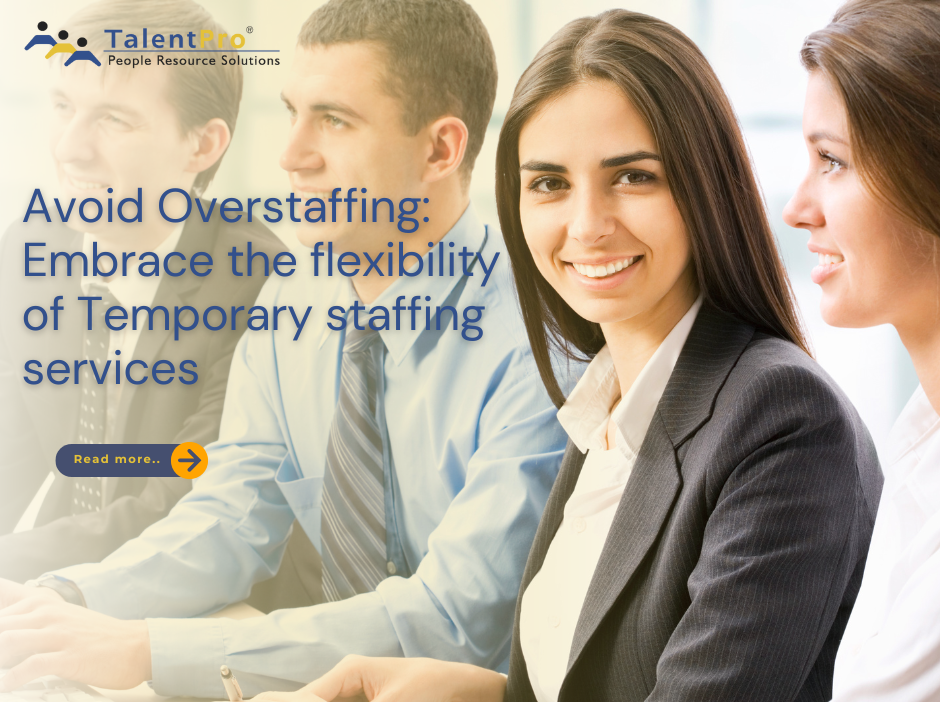All about RPO vs In-House recruitment
Have you ever been confused about the difference between RPO and In-House Recruitment? You’re not alone! In this post, we will clear up any confusion and help you understand the critical differences between these two types of employment solutions. Keep reading to learn more!
It can be a real challenge for a company to find high-quality candidates to hire.
From locating and engaging with top talent to developing hiring processes, managing logistics, and measuring results, there are certainly a lot of moving parts.
Fortunately, there are several ways an employer can choose to handle this portion of their business, including keeping it in-house, working with a staffing agency, or outsourcing it entirely to an RPO provider.
Let’s get the definitions down
To start, let’s define recruitment process outsourcing (RPO), and in-house recruitment and talk through how they work.
Read more:(How to choose an RPO)
What is RPO?
RPO is an agreement between an organization and a third-party provider for the delivery of part or all their recruitment processes. RPO service providers specialize in sourcing, screening, interviewing, and onboarding candidates using technology, industry expertise, and vast talent networks.
- Develop and execute customized recruiting strategies aligned with your business goals
- Manage the entire recruitment lifecycle, from candidate sourcing to onboarding to performance management
- Integrate with your internal processes and culture
- Sit on-site with you to manage the recruiting, interviewing, onboarding, and engagement processes
- Provide data-driven insights and reporting to optimize hiring practices
- Become a true extension of your business
Advantages of RPO:
Cost Savings: RPO may reduce hiring expenses as it centralizes processes and does not require overhead costs that would be attributed to an in-house recruitment team.
Scalability: The enterprises can upscale or downscale hiring efforts as per the demand without the complexities of handling a large recruitment team.
Access to expertise: RPO providers have extensive experience, market knowledge, and recruitment best practices.
Advantage technology: Many RPO providers utilize AI-based sourcing tools and data analytics for better hiring efficiency.
Decreased time to hire: RPO ensures faster placements due to its dedicated talent pipeline and reduces hiring delays.
Compliance and risk Management: RPO providers ensure compliance with labor laws and industry regulations, thereby reducing hiring risks.
What is In-House Recruitment?
In-house recruitment is the traditional method where a company hires an internal HR or recruitment team to manage talent acquisition.
Advantages of In-House recruitment:
Better cultural fit: Internal teams are more aware of the company’s culture and values, which results in better candidate alignment.
Full control: Companies can directly oversee and adjust their recruitment strategies as needed.
Stronger Employer Branding: In-house recruiters can promote the company’s brand consistently to potential candidates.
Personalized candidate experience: Internal teams can build stronger relationships with candidates and improve the overall hiring experience.
Read more:(Revolutionizing talent acquisition: The Impact of recruitment process outsourcing (RPO) in staffing)
Which one is best for your business?
The best choice depends on the size of your business, industry, hiring requirements, and budget. Here’s a quick comparison to guide you:
Choose RPO if: You need to scale quickly, reduce hiring costs, and leverage expert recruitment strategies.
Choose In-House recruitment if: You want complete control over the hiring process, prioritize cultural fit, and have the resources to manage an internal team.
Both RPO and in-house recruitment have their place in talent acquisition. Many businesses find success in adopting a hybrid approach—leveraging RPO for high-volume or specialized hiring while maintaining an internal team for strategic roles. Evaluating your company’s hiring goals, budget, and long-term workforce strategy will help determine the best option for your business.
Deciding between RPO vs in-house recruitment ultimately comes down to your business’s needs and hiring goals. Are you looking for targeted solutions to fill immediate vacancies or manage short-term projects? Staffing services can provide the flexibility and speed you need. If you’re aiming for a more strategic, integrated approach to talent acquisition that aligns with your long-term objectives, RPO might be the better choice.
In many cases, businesses start with staffing services to address immediate needs and then transition to RPO as their business grows, or their hiring needs become more complex.
At TalentPro, RPO provider we understand that every business is unique. Whether you need temporary staffing or a comprehensive RPO solution, we’re here to support your hiring journey with expertise and a commitment to partnership-based service. Get in touch with us today to explore how we can help you find the right talent and achieve your workforce goals.









